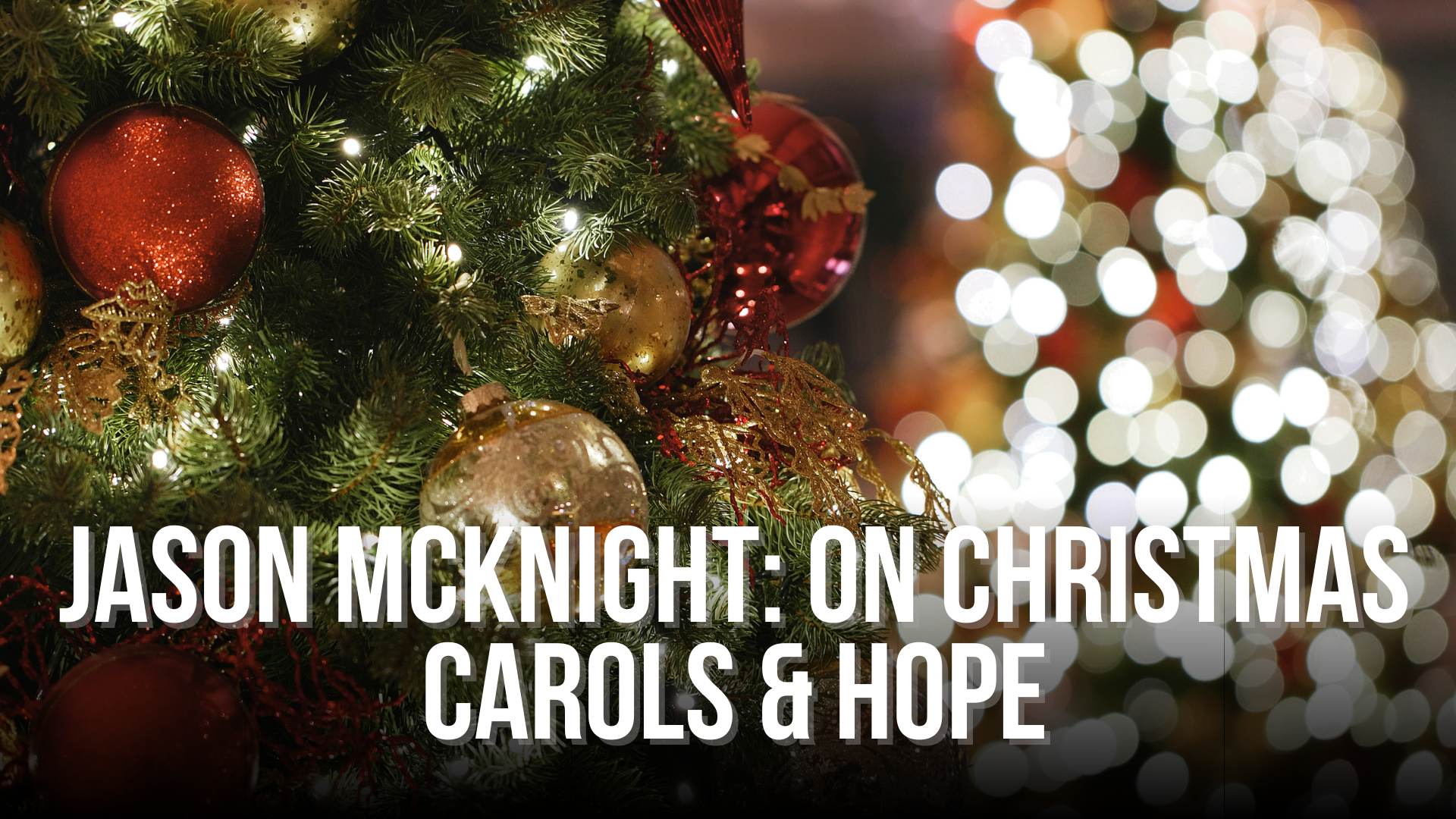Jason McKnight: On Christmas Carols & Hope
By Jason McKnight
Everyone has a favorite Christmas Carol. My grandmother, who has seen 101 Christmases, loves Silent Night. It fits her personality: warm, inviting, hospitable. What’s yours? And while we’re at it, why are Christmas Carols so well-loved? What is it about this collection of Hymns and Songs that mean so much to so many?
I have two reasons. First, they are simultaneously familiar and rare. We sing them every year, but we only sing them once a year. They bring us back in touch with Christmases past; they root us. They’re like dear ones we don’t often see, but love all the same: we just pick up where we left off. Carols as old friends on this earthly pilgrimage.
Reason #2 is this: they tell the bad news with the good news. So much of life does only one or the other. Watch TV news and it seems to be all “bad news”. Natural disasters, wars or famine, Covid toll, economic uncertainty, global trouble, and politics in this country. No matter who you watch, it’s bad news. It takes a toll on the spirit. We are diminished when we only consider the brokenness of the world.
Other people avoid bad news, and only fill their minds with so-called good news: Motivational speakers, inspirational thoughts, surface-level happiness. A Fortune-cookie existence. Tragically, there are too many pastors with large followings who only ever deal in positive thinking. But avoiding bad news doesn’t eliminate it. The world is still broken, and our lives are too. Yet, failing to rest in the good news can overwhelm us.
I think this is why Christmas carols are so well-loved: these old friends, who drop by once a year, tell us the bad news with the good news.
Think of O Holy Night: “Long lay the world in sin and error pining…” That phrase alone communicates such bad news: there is real wrong and wickedness, around us for eons, entombing us all. We long, dream, wait, pine for a change, but cannot effect it. This is bad news. Objectively.
Yet, the next line brings some good news: “Till he appeared and the soul felt its worth…” God has placed worth on your soul and proved by sending his Son. Good news overcomes the bad.
Or, if you like a minor key, think of: “O Come O Come Emmanuel, and ransom captive Israel, that mourns in lonely exile here…” The longing, the mourning, the alienation… bad news! “…Until the Son of God appear. Rejoice!” the good news always follows.
One more: I Heard the Bells on Christmas Day. Longfellow’s words are rich and in one stanza we sing: “And in despair I bowed my head, there is no peace on earth I said, for hate is strong and mocks the song of peace on earth, goodwill to men.” Doesn’t this give voice to your heart’s fears and wounds? So bad can be life, it mocks the song of God’s peace.
Until Longfellow hears yet more bells: “yet pealed the bells more loud and deep, God is not dead nor doth he sleep. The wrong shall fail, the right prevail with peace on earth goodwill to men.
When good news is absent, there is despair. When bad news is avoided, there’s deception. But, when bad news is acknowledged, and good news still overcomes, there is HOPE.
Christmas Carols are songs of hope, because they point to the most hopeful event in all of history: the baby in the Bethlehem. “A thrill of hope, the weary world rejoices, for yonder breaks a new and glorious morn…”
May the Hope of Christmas (with the help of the Carols) lead you in worship of the Newborn King.




